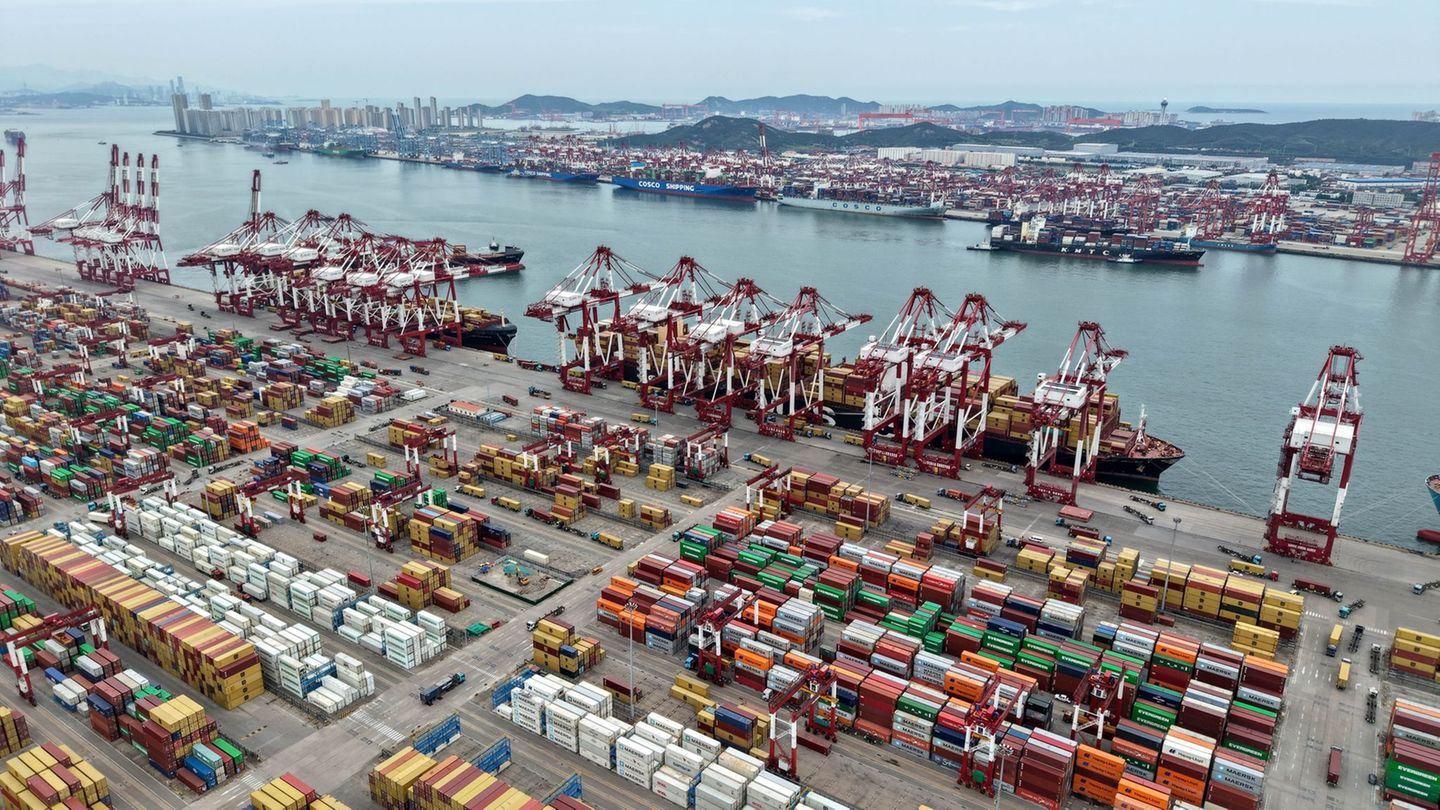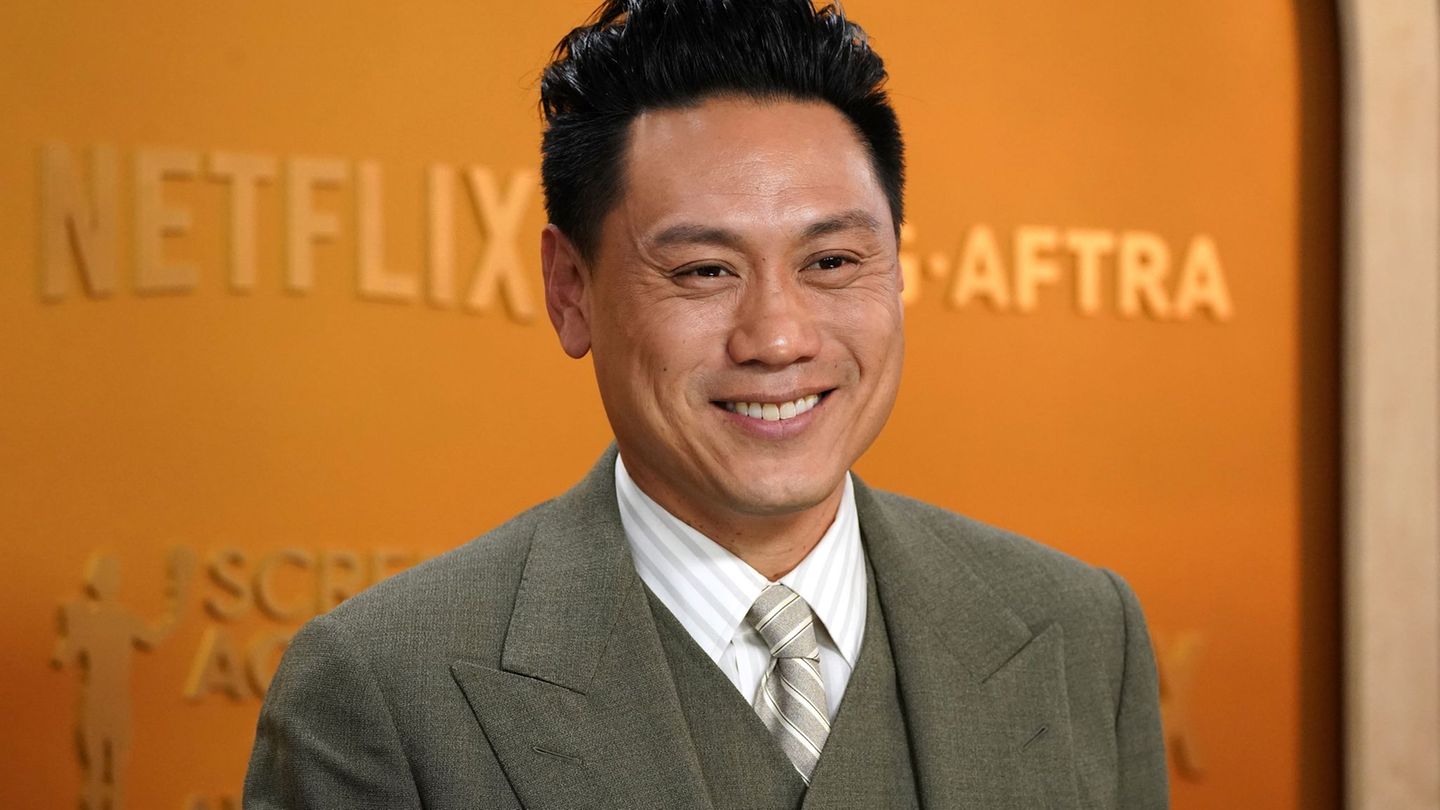Will the traffic light discuss things together one last time? Tonight the coalition leaders will meet in the Chancellery for the decisive round in the budget dispute. That is the starting point.
At least, in this regard, the traffic light coalition members already agree: Nobody has the intention of letting their cards be looked at. And what the three top men are talking about is simply not revealed. There is a hint of coalition negotiations in the Berlin air, only this time it wasn’t citrus freshness, but rather speculoos – welcome to the traffic light Advent.
So that is the starting point before what could be the decisive round in the budget negotiations. The coalition should have reached an agreement by tomorrow at the latest so that the cabinet can approve the draft budget, just in time to get it finalized this year.
Forecast? Difficult.
SPD General Secretary Kühnert does not want to abandon the welfare state
Tuesday morning in the Willy Brandt House. SPD General Secretary Kevin Kühnert invited people to a press conference at the party headquarters, in the “Kasino” meeting room. It should be about the party conference at the weekend and the future priorities of the Social Democrats. But these days everything is linked to the budget crisis. A question that the top party strategist is asked in different variations: How are the negotiations going?
“There is a general secretary sitting in front of you who has to prepare both scenarios, that’s part of the job,” says Kühnert. An agreement will be reached by the party conference, which begins on Friday in Berlin. Or you just can’t find an agreement. Kühnert says he doesn’t yet know which scenario will occur. However, he also joins the chorus of his comrades that has been singing tirelessly for days: the welfare state will not be abandoned “either in whole or in part.” That is the party’s position. But also the government?
Citizens’ money in particular is at the center of the austerity debate. The Union and FDP want to stop the planned increase at the turn of the year. However, this would not offer much potential for savings, if only for legal reasons (). To be on the safe side, Federal Labor Minister Hubertus Heil, SPD, has already put a lid on the debate – hardly without the Chancellor’s blessing.
Does Hubertus Heil open a back door for savings?
But Heil also says: “I am also in favor of us discussing how we can make the welfare state more targeted.” A back door for savings elsewhere? Possible.
According to the party and parliamentary group, an emergency situation should also be declared for 2024. The suspension of the debt brake is “not a fetish” of the SPD, said General Secretary Kühnert. However, he lacks “the creativity” as to how the many traffic light projects could otherwise be financed. In other words: shortening alone will certainly not be enough.
The pressure is great. If no fundamental agreement is reached by the SPD party conference at the weekend, Olaf Scholz will likely find himself in need of an explanation. If the Chancellor also holds out the prospect of cuts in social benefits, things are likely to become even more uncomfortable for him and his coalition. The comrades’ dissatisfaction is likely to be reflected in sensitive proposals that could place fiscal shackles on the party leaders and also the Chancellor. Scholz will speak to the delegates on Saturday. Either way, he had more pleasant days ahead of him.
Two guardrails and no emergency
From the FDP’s point of view, the situation is very simple. There are two conditions that have always been non-negotiable for the Liberals. Two guard rails, as Finance Minister Christian Lindner likes to say. First, no tax increases. Secondly, the debt brake applies.
One can read a certain hierarchy from the order of the two guardrails. Staying tough against tax increases is more important than showing backbone when it comes to the debt brake. But only very, very slightly more important. According to the FDP’s view, anyone who increases taxes in Germany, a country with high taxes, is not only damaging the economy, no, they are also turning voters against them. Especially those who relied on liberals to keep their promises.
In comparison, the debt brake was a rather abstract instrument that was always considered right and important, but which outside of politics was mainly discussed by financial nerds. The Constitutional Court ruling has changed this perception. And anyone who is celebrating solid state finances should not ignore it. The FDP is now reacting accordingly severely when the SPD and the Greens propose declaring a state of emergency again in 2024 because of the war in Ukraine. She wants to avoid that at all costs; that cannot be the lesson from Karlsruhe.
The FDP hopes for a pension reform
But what does the FDP want? Also pretty simple: shorten, shorten, shorten. According to party and faction leadership, the budget hole of 17 billion euros is not so big that it cannot be filled through austerity measures. Some liberals would like to sell the crisis as an opportunity and finally push ahead with what this government wanted to avoid: a comprehensive pension reform. In this case, too, reform clearly means cutting back. When asked where exactly he planned to save, a leading FDP coalition member recently coughed briefly and barely audibly something like “retire at 63.” It doesn’t get any more specific than that.
Now it is also clear to the liberals that they have to show accommodation somewhere. Where exactly? Well, it’s a difficult topic, you just notice: wherever there are tax reliefs that can’t really be justified in terms of regulatory policy, some liberals are now showing themselves to be flexible. Correcting something like that, they say, wouldn’t be a tax increase in the strictest sense.
The Greens get into the boxing ring
The Greens, on the other hand, have one main concern: that everything that even smells of climate protection and transformation will now be canceled. Many Greens complain that they are the only ones responsible for these issues within the coalition. The truth is, of course, that basically no one is as interested in it as they are.
14 billion euros – that’s how big the financial gap is that is opening up in the climate and transformation fund alone, just for the coming year. For the first payments to private heating renovation companies, for example, or for funding notices to German steelworks that want to set out on the path to decarbonization with the support of state money.
Reconstruction or dismantling is the alternative that many companies are currently faced with, Economics Minister Robert Habeck warned two weeks ago at the Green Party conference in Karlsruhe. Right now it’s about reinventing the German business model. A brutal economic war is raging out there, waged with unbelievable billions, but we Germans have just disarmed ourselves: “With the debt brake as it is, we have voluntarily tied our hands behind our backs and so we are going into the boxing match.”
The star capital team
Are you interested in politics? – and read the most important information of the week, selected for you by our Berlin politics experts!
One can easily imagine the mood when, in such a round of traffic light negotiations, Habeck’s great battle painting meets what he sees as Lindner’s small-time financial policy soul. Nevertheless, all sides continue to emphasize in unison that trust exists.
But well, Kleinklein, the Greens can do that too: If you ask the specialist politicians, they immediately think of various things that they would delete if they were only allowed to. Always mentioned: the environmentally harmful subsidies. The Federal Environment Agency regularly puts it at 60 billion euros. Fittingly, the same amount as in the KTF. Or should be stuck. But even the Greens point out that social housing is also on the list – because of concrete and surface sealing. And when even the Green Youth points out that even with the commuter allowance you can’t just clear-cut because of the threat of social upheaval, then you know at the latest: it won’t be easy.
Source: Stern
I have been working in the news industry for over 6 years, first as a reporter and now as an editor. I have covered politics extensively, and my work has appeared in major newspapers and online news outlets around the world. In addition to my writing, I also contribute regularly to 24 Hours World.




